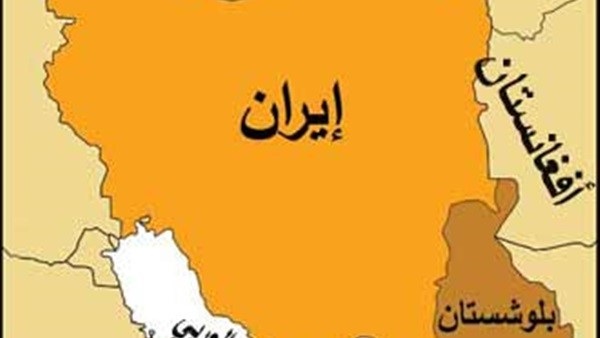Price of marginalization: Implications of escalation of security operations in Baluchestan against mullah regime

The Baluchestan region represents a major challenge to the
Iranian regime in light of the repeated security
operations against forces affiliated with the regime as
a result of the non-Persian nationalities’ rejection of the cases of
marginalization against them, most notably the Baluch ethnicity.
Recently, the IRNA news agency reported, citing a security
source, that four Iranian border guards were injured by an explosive device on
the Mirjaveh border in Sistan and Baluchestan Province.
According to the security source, three of those injured in
the explosion are in good general condition, but one of the injured was
transferred to Provincial Health Center in Zahedan for treatment.
Earlier news reports said that a military vehicle exploded
in the Shahrak area of the border city of Mirjaveh. Reports quoted local
sources in Mirjaveh as saying that the situation in the city was tense and the
movement of military vehicles increased for several hours. The explosion
coincided with gunmen launching an attack on Zahedan Police Station 16 near the
Makki Mosque last Saturday, in which a policeman and all four attackers were
killed.
Repression campaigns
These operations come at a time when reports revealed
statistics on Baluch victims in five regions, where 182 citizens were executed,
167 people were killed by shooting by security personnel, and 121 people were
killed on Bloody Friday in Zahedan and Khash, in addition to the killing of 76
people by gunfire from unknown gunmen, and also the killing of 82 citizens who
were “fuel transporters” while working.
According to this report, statistics were collected for 182
members of the Baluch ethnic group who were executed from 23 prisons across
Iran. About 81% of them were related to drug crimes, and five people were
executed on political and security charges. According to data from Haalvsh,
which monitors human rights violations in the region, two of those executed
were under 18 years of age at the time of the crime and were executed under the
heading of “child-criminal”.
Price of marginalization
Dr. Masoud Ibrahim, an academic researcher specializing in
Iranian affairs, said in exclusive statements to the Reference that the
security conditions in the Baluchestan region have deteriorated over the past
two years. The Baluch movements have escalated their armed actions against
Iranian security forces in the region, and there is no doubt that the increase
and frequency of armed operations in this region has its logical reasons, which
Iranian regime officials have long turned a blind eye to.
Ibrahim added that the Baluch ethnicity, like other
non-Persian nationalities and ethnicities, suffers from marginalization and
persecution by the authorities, which prompted these groups to defend their
rights. The Baluch are people of a cause and have a history of national
struggle, and they were an important supporter in the success of the Iranian
revolution, but after the success of the revolution, their legitimate rights
were ignored. From here, the Baluch began to move to gain these rights by
force, and armed movements were formed in the region, such as Jaysh al-Adl (Army
of Justice), Jundallah, and Ansar al-Furqan.
He added that the Baluch carried out many operations against
the Iranian security forces present in the region, as these forces were using
killing, oppression, and arrest to deal with the population of the Baluch
region, especially the Sunnis, who represent the majority there. These
organizations were forced to flee into the Pakistani and Afghan border areas,
which became a center for operations against the Iranian Revolutionary Guard
forces.
Persecution of non-Persian nationalities
Ibrahim considered that the continued persecution of
non-Persian nationalities and the marginalization of their rights will be a
reason for continued tensions in these regions, and the armed movements will
continue to carry out armed operations against the Iranian security forces. He
added that the continuation of armed operations will be an incentive for all
minorities to engage in armed dealings with the Iranian regime, and these areas
will turn into hotbeds of tension that threaten the safety of societal security
and will increase the extent of protests against
the regime that have been ongoing for nearly a year. The more these operations
create tension in the Iranian internal arena, the more the Baluch will want to
secede and achieve their historical dream.







